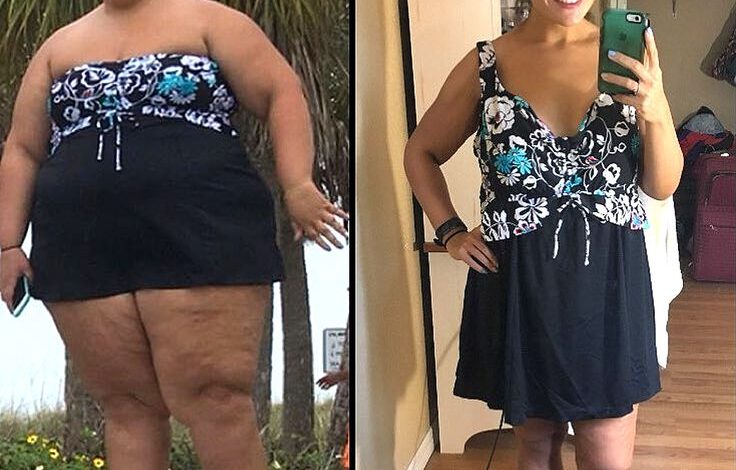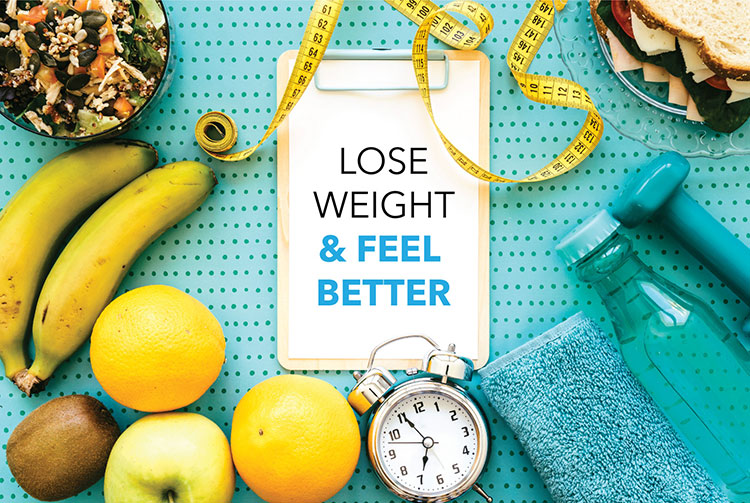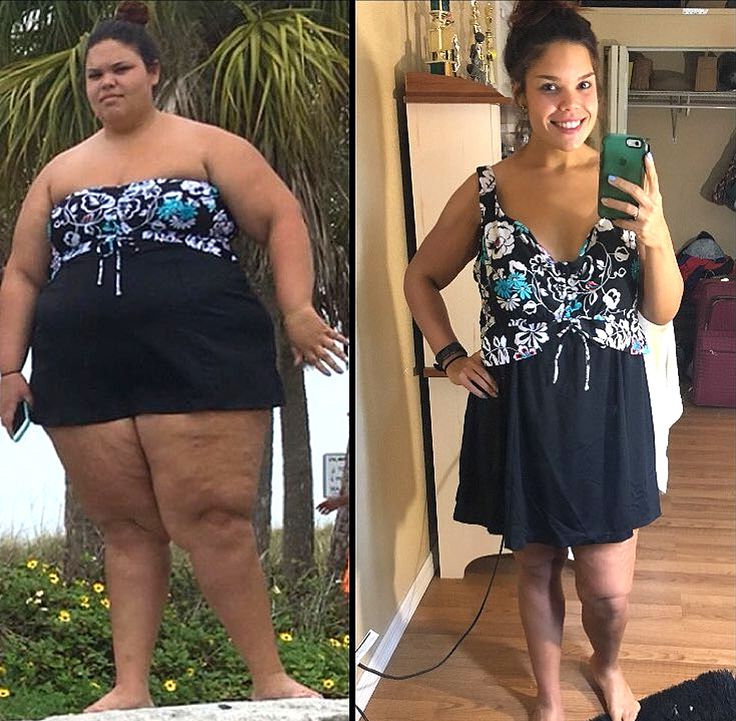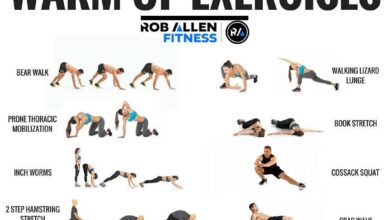
The Big Rocks for Weight Loss Success
The big rocks that make a difference for weight loss aren’t just about crunching numbers on a scale. They’re about embracing a lifestyle that fuels your body, mind, and spirit. This journey is a marathon, not a sprint, and understanding these foundational elements is crucial for lasting success.
Weight loss isn’t just about shedding pounds, it’s about building a healthier, happier you. It’s about learning to nourish your body with the right foods, moving your body in ways you enjoy, and cultivating a positive mindset that supports your goals.
Understanding Weight Loss Fundamentals
Weight loss is a complex process that involves a combination of factors, including diet, exercise, and genetics. However, the fundamental principle of weight loss is simple: you must burn more calories than you consume.
Calorie Intake and Expenditure
The foundation of weight loss lies in the relationship between calorie intake and expenditure. Calories are units of energy that your body uses for various functions, including breathing, digesting food, and physical activity. When you consume more calories than your body needs, the excess calories are stored as fat.
Conversely, when you burn more calories than you consume, your body uses stored fat for energy, leading to weight loss.
Metabolism and Its Role
Metabolism refers to all the chemical processes that occur in your body to sustain life. It includes processes such as breaking down food for energy, building and repairing tissues, and regulating body temperature. Your metabolism plays a crucial role in weight management because it determines how many calories your body burns at rest.
A higher metabolism means your body burns more calories even when you are not physically active. Factors that can influence metabolism include age, gender, genetics, muscle mass, and activity levels.
Types of Calories and Their Effects
Calories are derived from the macronutrients: carbohydrates, proteins, and fats. Each macronutrient provides a different amount of calories per gram.
- Carbohydrates: Provide 4 calories per gram and are the body’s primary source of energy. They are found in foods like bread, pasta, rice, and fruits.
- Proteins: Also provide 4 calories per gram and are essential for building and repairing tissues. They are found in foods like meat, poultry, fish, beans, and eggs.
- Fats: Provide 9 calories per gram and are a concentrated source of energy. They are found in foods like oils, butter, nuts, and seeds.
The type of calories you consume can also affect your weight loss. For example, consuming a diet high in processed carbohydrates can lead to rapid weight gain, while a diet high in protein and healthy fats can promote satiety and help you feel fuller for longer.
It’s important to remember that all calories are not created equal. The quality of calories matters as much as the quantity.
Lifestyle Modifications

Lifestyle modifications are the cornerstones of sustainable weight loss. They involve making long-term changes to your daily habits, focusing on a holistic approach that addresses both physical and mental well-being.
Regular Exercise
Regular exercise is crucial for weight loss and overall health. It burns calories, builds muscle mass, improves cardiovascular health, and boosts metabolism. Aim for at least 150 minutes of moderate-intensity aerobic activity or 75 minutes of vigorous-intensity aerobic activity per week, along with strength training exercises at least twice a week.Here are some examples of effective workouts for weight loss:
- Cardiovascular exercises:Brisk walking, jogging, cycling, swimming, dancing, and jumping rope.
- Strength training exercises:Weightlifting, bodyweight exercises, resistance bands, and using exercise machines.
Balanced Diet
A balanced diet is essential for providing your body with the nutrients it needs to function properly and support weight loss. Focus on consuming whole, unprocessed foods, such as fruits, vegetables, lean protein, and whole grains. Here are some strategies for creating a healthy eating plan:
- Limit processed foods, sugary drinks, and unhealthy fats.These foods are high in calories and low in nutrients, making it difficult to manage your weight.
- Eat plenty of fruits and vegetables.They are low in calories and rich in vitamins, minerals, and fiber, which can help you feel full and satisfied.
- Choose lean protein sources.Protein helps build and repair muscle tissue, which can boost your metabolism and aid in weight loss.
- Include healthy fats in your diet.Unsaturated fats, found in avocados, nuts, and olive oil, are beneficial for heart health and can help you feel full.
- Drink plenty of water.Water is essential for hydration and can help you feel full, reducing your overall calorie intake.
Stress Management
Stress can significantly impact weight management. When you’re stressed, your body releases cortisol, a hormone that can lead to increased appetite, fat storage, and weight gain. Here are some tips for managing stress:
- Practice relaxation techniques.Deep breathing exercises, meditation, yoga, and tai chi can help calm your mind and body.
- Get enough sleep.Sleep deprivation can increase cortisol levels and lead to weight gain. Aim for 7-8 hours of sleep per night.
- Engage in activities you enjoy.Spending time doing things you love can help reduce stress and improve your overall well-being.
- Seek professional help if needed.If you’re struggling to manage stress on your own, consider seeking professional help from a therapist or counselor.
Adequate Sleep, The big rocks that make a difference for weight loss
Sleep is essential for weight loss and overall health. When you don’t get enough sleep, your body produces more of the hunger hormone ghrelin and less of the satiety hormone leptin, leading to increased appetite and cravings.
When it comes to weight loss, the big rocks that make a difference are consistency, healthy eating habits, and regular exercise. For athletes looking to shed pounds, mastering calorie cutting is crucial. This involves understanding your daily caloric needs and finding a sustainable deficit that supports performance.
By focusing on these core principles, athletes can achieve their weight loss goals while maintaining their athletic prowess.
“Adequate sleep is essential for weight loss. When you don’t get enough sleep, your body produces more of the hunger hormone ghrelin and less of the satiety hormone leptin, leading to increased appetite and cravings.”
Aim for 7-8 hours of quality sleep per night.
Weight loss is a journey, not a race, and focusing on the big rocks like healthy eating and consistent exercise can make a huge difference. One inspiring story is that of Danielle, who prioritized her health and well-being, danielle put herself first and dropped 50 pounds.
Her dedication to these fundamentals ultimately led to a remarkable transformation. Remember, it’s about making sustainable changes that fit into your lifestyle, not quick fixes.
The Power of Mindset
Your mindset plays a crucial role in your weight loss journey. It’s not just about calories and exercise; it’s about how you approach the process, how you talk to yourself, and how you handle setbacks. A positive mindset can be your greatest ally in achieving sustainable weight loss.
The Role of Self-Motivation and Goal Setting
Self-motivation is the driving force behind any successful weight loss plan. When you’re motivated, you’re more likely to stick to your goals, even when faced with challenges. Setting realistic and achievable goals is essential for maintaining motivation.
- Start by identifying your “why.” What are your reasons for wanting to lose weight? This could be for health reasons, to improve your self-confidence, or to fit into a particular outfit. Having a clear “why” will help you stay focused and motivated.
- Set SMART goals. SMART stands for Specific, Measurable, Achievable, Relevant, and Time-bound. For example, instead of saying “I want to lose weight,” set a specific goal like “I want to lose 1-2 pounds per week.” This will help you track your progress and stay on track.
- Break down your goals into smaller, manageable steps. This will make the process feel less overwhelming and give you a sense of accomplishment as you achieve each milestone.
- Celebrate your successes. Every step you take towards your goal is a victory. Acknowledge your progress and reward yourself for your hard work.
The Importance of Self-Compassion and Avoiding Negative Self-Talk
Negative self-talk can sabotage your efforts and make weight loss feel like an uphill battle. Instead, practice self-compassion and treat yourself with kindness.
- Acknowledge that everyone makes mistakes. It’s okay to slip up sometimes. Don’t let one setback derail your entire journey.
- Focus on your strengths and celebrate your accomplishments, big or small. This will help you build a more positive self-image.
- Replace negative thoughts with positive affirmations. Instead of saying “I’m never going to lose weight,” try saying “I’m committed to making healthy choices and achieving my goals.”
Strategies for Overcoming Setbacks and Staying Committed to Weight Loss Goals
Setbacks are a normal part of any weight loss journey. The key is to learn from them and move forward.
When it comes to weight loss, the “big rocks” are the fundamentals: consistent exercise, mindful eating, and adequate sleep. A plant-based diet can be a great way to support these efforts, and if you’re an athlete, you might want to check out the pros and cons of a plant-based diet for athletes to see if it’s right for you.
Ultimately, the key to success is finding a sustainable approach that works for your individual needs and lifestyle.
- Identify the triggers that led to the setback. This will help you avoid similar situations in the future.
- Don’t beat yourself up. It’s okay to slip up. Just get back on track as soon as possible.
- Reassess your goals and make adjustments as needed. Your goals may need to be revised as you progress on your journey.
- Seek support from friends, family, or a therapist. Having a support system can make a big difference in your journey.
- Remember your “why.” Remind yourself of your reasons for wanting to lose weight and use this as motivation to keep going.
Harnessing the Power of Nutrition
Nutrition plays a crucial role in weight loss, as it provides the fuel your body needs to function optimally and achieve your weight management goals. By making strategic choices about what you eat, you can support your metabolism, curb cravings, and ultimately, shed those extra pounds.
The Role of Protein in Weight Loss
Protein is an essential macronutrient that plays a significant role in weight loss. It promotes satiety, meaning it keeps you feeling full for longer, which can help reduce overall calorie intake. Protein also supports muscle mass maintenance, which is crucial for boosting metabolism and burning more calories at rest.
Strategies for Incorporating Fiber-Rich Foods
Fiber is another vital nutrient that can aid in weight management. It adds bulk to your meals, promoting satiety and slowing down digestion, which can help regulate blood sugar levels and prevent spikes in insulin, a hormone that can contribute to fat storage.
- Include whole grains in your diet:Opt for brown rice, quinoa, whole-wheat bread, and oats over refined grains. These options are packed with fiber and other essential nutrients.
- Eat plenty of fruits and vegetables:Fruits and vegetables are naturally low in calories and rich in fiber. Aim for at least five servings per day.
- Add legumes to your meals:Lentils, beans, and chickpeas are excellent sources of fiber and protein. They can be incorporated into soups, stews, salads, and even veggie burgers.
The Importance of Hydration
Staying adequately hydrated is essential for overall health and well-being, and it plays a role in weight loss. Water helps to keep you feeling full, reducing the urge to snack excessively. It also aids in the breakdown and elimination of waste products, which can contribute to weight gain if they accumulate in the body.
Sample Meal Plan for Weight Loss
Here is a sample meal plan that incorporates healthy and nutritious foods for weight loss. This is just a guideline, and you can adjust it based on your individual needs and preferences.
| Meal | Food Choices |
|---|---|
| Breakfast | Oatmeal with berries and nuts, Greek yogurt with fruit and granola, eggs with whole-wheat toast |
| Lunch | Tuna salad on whole-wheat bread, lentil soup with a side salad, chicken breast with quinoa and steamed vegetables |
| Dinner | Salmon with roasted vegetables, turkey chili with brown rice, chicken stir-fry with brown rice noodles |
| Snacks | Fruits, vegetables, nuts, yogurt, hard-boiled eggs |
Seeking Professional Guidance
While you can embark on your weight loss journey with self-motivation and knowledge, seeking professional guidance can significantly enhance your success and ensure a safe and sustainable approach. Consulting experts can provide personalized support, accountability, and expert insights to help you achieve your goals.
The Role of a Registered Dietitian
Registered dietitians (RDs) are nutrition experts who play a crucial role in weight management. They can help you develop a personalized nutrition plan that meets your individual needs, dietary preferences, and health conditions.
- Tailored Nutrition Plans:RDs assess your current diet, lifestyle, and health goals to create a customized eating plan that supports weight loss. This plan may involve adjusting portion sizes, choosing nutrient-dense foods, and incorporating healthy snacks.
- Addressing Nutrient Deficiencies:RDs can identify potential nutrient deficiencies that may arise from restrictive diets or weight loss efforts. They can help you incorporate appropriate supplements or adjust your diet to ensure you receive all the essential nutrients your body needs.
- Promoting Healthy Habits:RDs can provide guidance on developing sustainable healthy eating habits that go beyond temporary dietary changes. They can teach you about mindful eating, portion control, and making informed food choices.
- Addressing Food Sensitivities and Allergies:If you have food sensitivities or allergies, an RD can help you navigate dietary restrictions and find suitable alternatives to ensure you maintain a balanced diet while managing your weight.
The Benefits of Working with a Certified Personal Trainer
Certified personal trainers (CPTs) are fitness professionals who can help you design and execute an effective exercise program for weight loss. They can provide personalized guidance, motivation, and accountability to help you stay on track.
- Personalized Exercise Plans:CPTs consider your fitness level, goals, and any limitations to create a safe and effective exercise plan that aligns with your weight loss objectives.
- Proper Form and Technique:CPTs can teach you proper exercise form and technique to prevent injuries and maximize results. They can also modify exercises to accommodate any physical limitations.
- Motivation and Accountability:Having a trainer can provide motivation and accountability, especially when you feel tempted to skip workouts or make excuses. They can also help you set realistic goals and celebrate your progress.
- Variety and Challenge:CPTs can introduce new exercises and challenges to keep your workouts interesting and prevent plateaus. They can also adjust the intensity and duration of your workouts as you get stronger and fitter.
The Importance of Consulting a Doctor or Healthcare Professional
Consulting a doctor or healthcare professional is crucial for individuals with underlying health conditions or those considering significant weight loss. They can assess your overall health, identify any potential risks, and recommend the best course of action for your specific situation.
- Medical Evaluation:A doctor can conduct a comprehensive medical evaluation to identify any underlying health conditions that may affect your weight loss journey. They can also assess your risk factors for certain diseases and recommend appropriate interventions.
- Monitoring Medications:Some medications can affect weight, appetite, or metabolism. A doctor can review your current medications and make adjustments if necessary to optimize your weight loss efforts.
- Personalized Recommendations:Based on your medical history, health conditions, and weight loss goals, a doctor can provide personalized recommendations for diet, exercise, and other interventions.
- Safety and Support:A doctor can provide ongoing support and monitoring to ensure your weight loss journey is safe and effective. They can also address any concerns or side effects you may experience.
Concluding Remarks: The Big Rocks That Make A Difference For Weight Loss

Remember, sustainable weight loss isn’t a quick fix; it’s a lifestyle transformation. It’s about finding the right combination of healthy habits, professional guidance, and a mindset that believes in your ability to achieve your goals. So, take it one step at a time, celebrate your wins, and embrace the journey.
You’ve got this!






